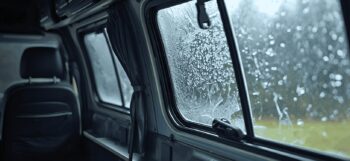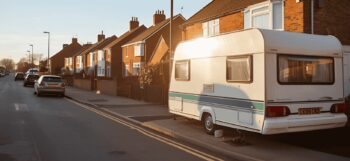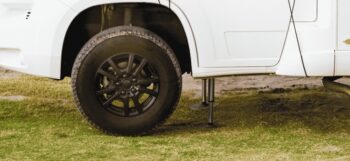Are you wondering if it’s worth getting a motorhome habitation check?
In this article, we'll cover what a habitation check involves, why it's necessary for your safety, and the kind of issues it can help to uncover.
So, whether you're a seasoned tourer or new to motorhome ownership, read on to learn more on how a habitation check can not only help to make your motorhome a safe touring environment, but keep it in good working order too.
What is a motorhome habitation check?
A habitation check is a wide-ranging inspection designed to identify faults, wear, and potentially safety issues of its utility systems (water, gas and electric) that make your motorhome habitable.
A motorhome habitation check is not the same as an MOT, which focuses on mechanical and road safety aspects like brakes, tyres, lights, and emissions, to make sure your vehicle is roadworthy. A habitation check looks at the living area’s internal systems, excluding the base vehicle, chassis and engine, and also covers fire safety and ventilation checks.
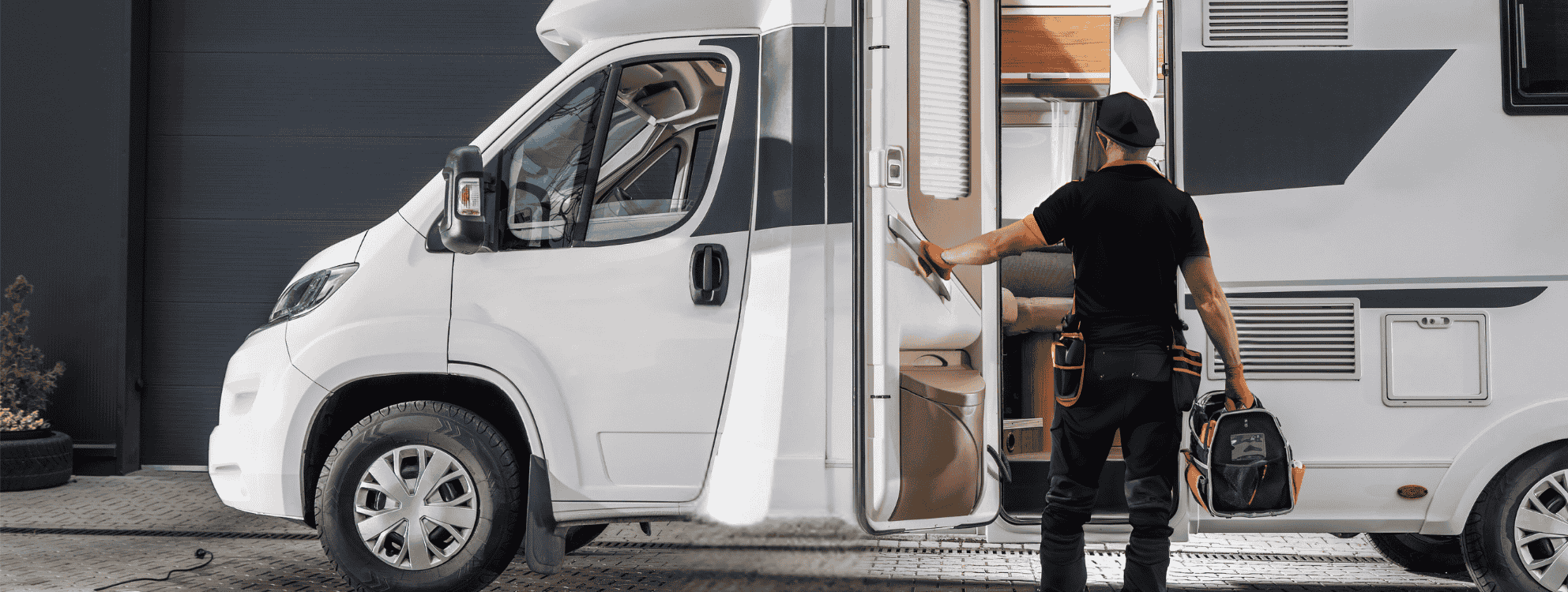
What’s included in a motorhome habitation check?
While providers follow a general core inspection checklist, the depth of the check, equipment used, and technician expertise can vary from company to company.
Some providers offer a basic check, while others may include extras like appliance servicing or detailed damp mapping. Checks can be carried out at workshops or by mobile technicians who will come to your home. For some, a mobile check may be more convenient but can sometimes limit the tools used, or testing conditions.
Typically, a motorhome habitation check looks at:
Gas system
- Regulator and hoses to spot wear, damage, or signs they need replacing.
- Pressure and check for leaks.
- Anything that runs off gas, such as your cooker, heater and fridge may be checked to ensure they are in good working order and there is adequate ventilation.
Water system
- The water pump to see if it’s working properly and giving you a steady flow of water.
- Taps and shower to ensure water runs with no blockages or splutters.
- Wastewater outlets and seals to prevent leaks, smells, or build-up is also part of the water system check.
Electrical system
- The health of your leisure battery to make sure it’s charging properly, and whether it’s delivering a healthy voltage.
- Sockets and the RCD (that’s the safety switch) to protect against electrical faults.
Lights and appliances to ensure they are working as they should, with no flickers or failures.
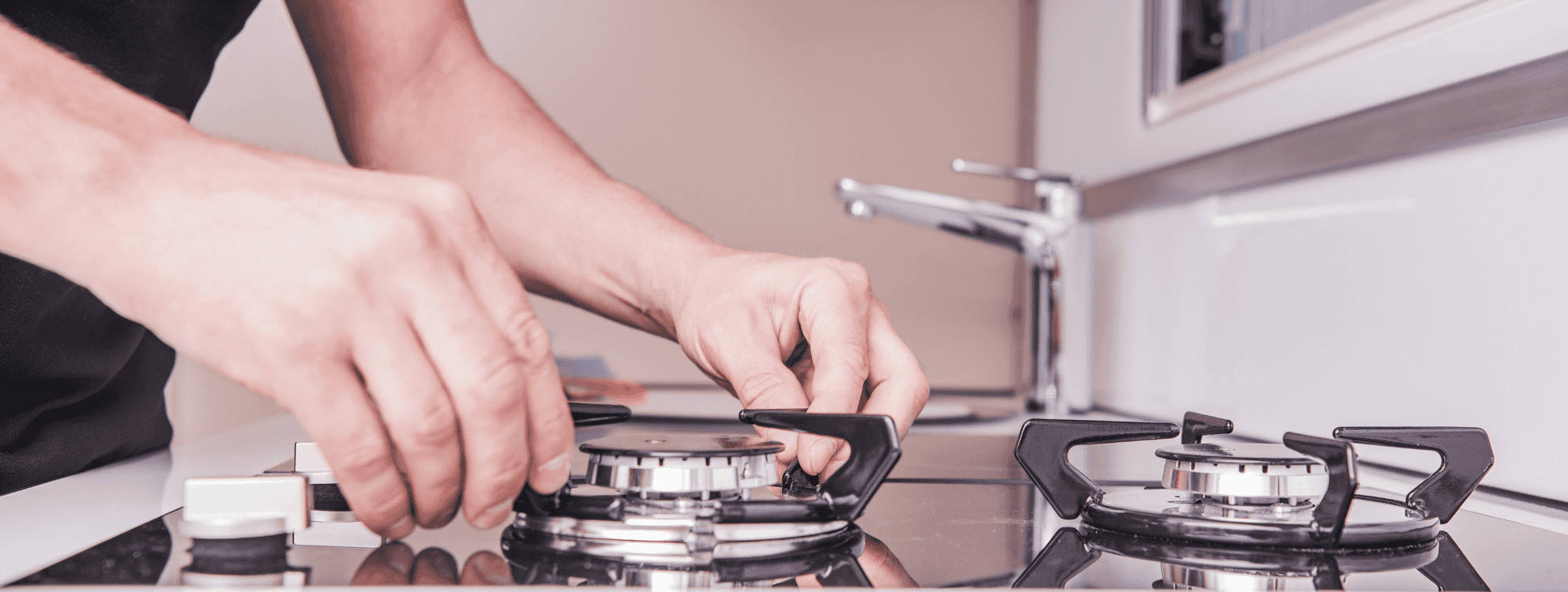
Heating and ventilation
- Vents and extractor fans, to ensure air flows freely, helping prevent condensation, is on the checklist.
- Carbon monoxide detector to make sure it’s working properly.
- Heating system, to check it fires up and runs efficiently, is included.
Bodywork and seals
- Hidden damp or water ingress check using a moisture meter.
- Window and door seals, to make sure they’re watertight and crack-free.
- Roof lights and vents to ensure they open, close, and seal properly to keep rain out and fresh air circulating.
Interior fittings
- Furniture, to make sure it is secure and properly fixed, so nothing shifts or rattles while you’re on the move.
- The smoke alarm and fire extinguisher to make sure they’re ready to use, in an emergency.
How often should you book a motorhome habitation check?
Check your warranty booklet as it usually specifies the exact timing. Some warranties require the first check to be carried out at 10–12 months.
Approved workshops can get busy, especially in spring and autumn. Booking a few months ahead can help to ensure you don’t miss your window.
How much does a motorhome habitation check cost?
In the UK, you can typically expect to pay between £195 upwards, with mobile services often starting around £195 and workshop-based checks ranging up to £269 or more depending on the provider.
Factors that may influence how much you pay can include:
- The type of motorhome you have, such as coach-built, A-class or campervan.
- Where the check is carried out, e.g. at your home or in a workshop.
- Additional repairs or servicing you choose to add on.
While it can seem like an extra expense, the value it provides in safety, compliance, and long-term maintenance far outweighs the cost, especially when it helps catch issues early and protects your warranty.
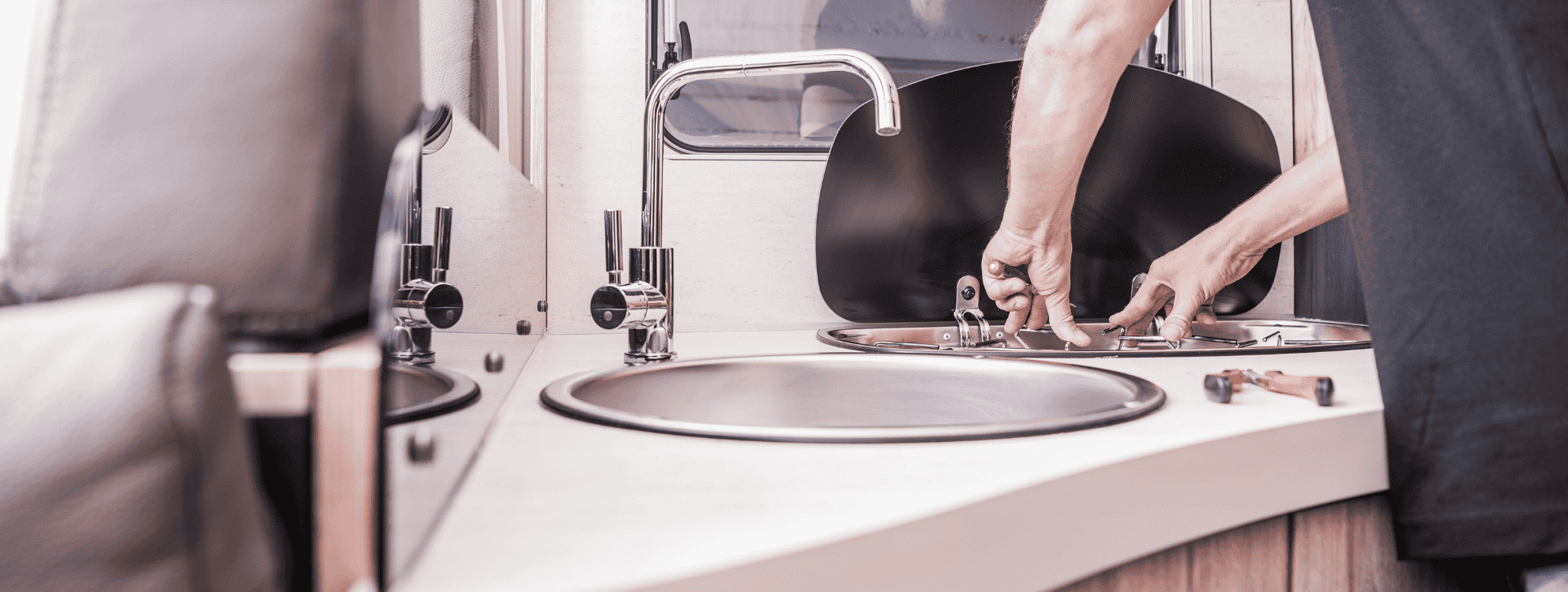
Where do I get a motorhome habitation check done?
Choosing a trusted provider can be tricky as not all technicians are created equally. Look for NCC-approved workshops or mobile engineers with strong reviews and transparent pricing.
The NCC (National Caravan Council) is the UK’s official trade body for caravans and motorhomes. It plays a central role in setting safety standards, promoting best practices, and supporting both consumers and businesses across the leisure vehicle industry.
When you book a motorhome habitation check with an NCC-approved workshop, you’re choosing a provider that meets rigorous safety and quality benchmarks. It’s a mark of trust and professionalism.
What to look for when booking a habitation check
When choosing a technician or workshop, here’s what to prioritise:
Certification and insurance
As mentioned above, look for NCC Approved Workshops or AWS (Approved Workshop Scheme) technicians. Confirm that the provider has public liability insurance and is qualified to inspect gas and electrical systems.
A clear checklist of inspection points
A reputable provider should be willing to offer a transparent breakdown of what’s included in the check. Ask if they follow a standardised checklist or use manufacturer-specific protocols.
Written report with findings and recommendations
You should receive a detailed written report outlining:
- What was inspected
- Any faults or concerns picked up
- Recommended repairs or maintenance
This report is essential for warranty validation, resale value, and insurance claims.
Questions to ask before booking
To help you decide on a suitable provider, consider asking the following questions:
- Are you NCC-approved or part of the AWS?
- What’s included in the check. Can I see a sample checklist?
- Will I receive a written report with photos or damp readings?
- Do you offer mobile visits or workshop-only appointments?
- Can you service my specific make/model of motorhome?
Preparing Your motorhome for a habitation check
Make sure your motorhome is clean and accessible before the technician arrives. This means clearing everything out that wasn’t in the motorhome when you bought it. The technician will need to access things like the leisure batteries, water heaters and pumps. These are often found in areas under seats or beds, or in a kitchen cupboard or utility area. It’s important that these areas left are unobstructed, so the technician has easy access.
Prep Checklist:
- Empty water tanks and waste containers
- Remove clutter from inspection areas
- Ensure keys and manuals are available
- Charge leisure battery if possible
If you book a mobile habitation check, you need to ensure that the engineer has good clearance around the outside of the motorhome, so they have full access to all sides.
The technician will need water and electricity to be able to check these systems. Ensure you have your electric hookup connected to your motorhome and access to an outside tap and a food grade hose pipe of sufficient length to reach your motorhome. You will also need to ensure you have sufficient gas supply to allow them to test your hose and gas appliances such as fridge, cooker and heating.
Common Issues found during a motorhome habitation check
Here are some of the most common problems technicians uncover:
- Damp or water ingress around windows, roof lights, or wall panels, often due to worn seals or poor ventilation.
- Gas leaks or faulty regulators, which can pose serious safety risks and often go unnoticed without professional testing.
- Electrical faults or leisure battery issues, including failing wiring, faulty sockets, or inconsistent charging.
- Blocked waste outlets, which can lead to bad odours or blocked sinks and showers.
- Out of date fire extinguishers or non-functioning smoke alarms and carbon monoxide detectors.
Follow-up actions to keep your motorhome warranty valid
If any faults are found during your habitation check, it’s important to get them resolved as quicky as possible. Many manufacturer warranties require that:
- Repairs are completed by qualified technicians, ideally at an NCC-approved workshop.
- Documentation is kept, including the original habitation report and any invoices for repair work.
- Annual checks are not skipped, even if no issues are found, the inspection itself must be logged to maintain coverage.
Not acting on issues found or delaying repairs could invalidate your warranty, especially in the case of structural or damp-related claims. Treat the check as both a safety measure and a compliance check.
Motorhome insurance and habitation checks
While checks are not a requirement for insurance purposes, many motorhome insurers recognise the value of regular habitation checks. Some insurers may:
- Ask for proof of annual checks to maintain full policy coverage, especially if you make a claim that’s related to fire, water damage, or gas faults.
- Offer built in discounts or enhanced cover for vehicles that undergo regular inspections by approved technicians.
- Request habitation reports as part of the claims process, particularly if damage is linked to damp, leaks, or electrical faults.
Keeping your habitation check records organised and up to date not only supports your manufacturer’s warranty, but it can also demonstrate responsible ownership, should you find yourself needing to make a claim.
At Lifesure, we’ve been arranging insurance for motorhomes in the UK for over 40 years, so we know how to help you find a suitable policy.
Our award-winning agents are always pleased to help. Call them on 01480 402 460 for a new quote or to help with any changes to an existing policy.
Frequently asked questions
What is a motorhome habitation check?
A motorhome habitation check is an annual inspection of the living area in your motorhome. It covers gas, water, electrical, and safety systems to ensure everything is safe and functional.
How long does a motorhome habitation check take?
Most checks take between 2 and 3 hours, depending on the motorhome’s size, age and condition.
How much does a motorhome habitation check cost?
In the UK, expect to pay between £195 and £300 , depending on your motorhome type, location, and whether the service is mobile or workshop based.
Do I need a habitation check for a new motorhome?
Yes. Even new motorhomes benefit from a habitation check to validate warranties and ensure systems are functioning correctly.
Is a motorhome habitation check a legal requirement
No, a habitation check isn’t a legal requirement in the UK. However, it’s strongly recommended by dealers for safety, warranty protection, and maintaining your motorhome’s value especially if you use gas appliances or plan to sell or insure your vehicle.
Can I do a habitation check myself?
You can perform basic checks, but a full habitation check requires specialist tools and expertise. Professional checks are recommended annually.
Is a motorhome habitation check required for insurance?
Some insurers require annual habitation checks to maintain cover. Always check your policy terms.
Disclaimer: The sole purpose of this article is to provide guidance on the issues covered. This article is not intended to give legal advice, and, accordingly, it should not be relied upon. It should not be regarded as a comprehensive statement of the law and/or market practice in this area. We make no claims as to the completeness or accuracy of the information contained herein or in the links which were live at the date of publication. You should not act upon (or should refrain from acting upon) information in this publication without first seeking specific legal and/or specialist advice. Arthur J. Gallagher Insurance Brokers Limited trading as Lifesure accepts no liability for any inaccuracy, omission or mistake in this publication, nor will we be responsible for any loss which may be suffered as a result of any person relying on the information contained herein.
FP1648-2025





